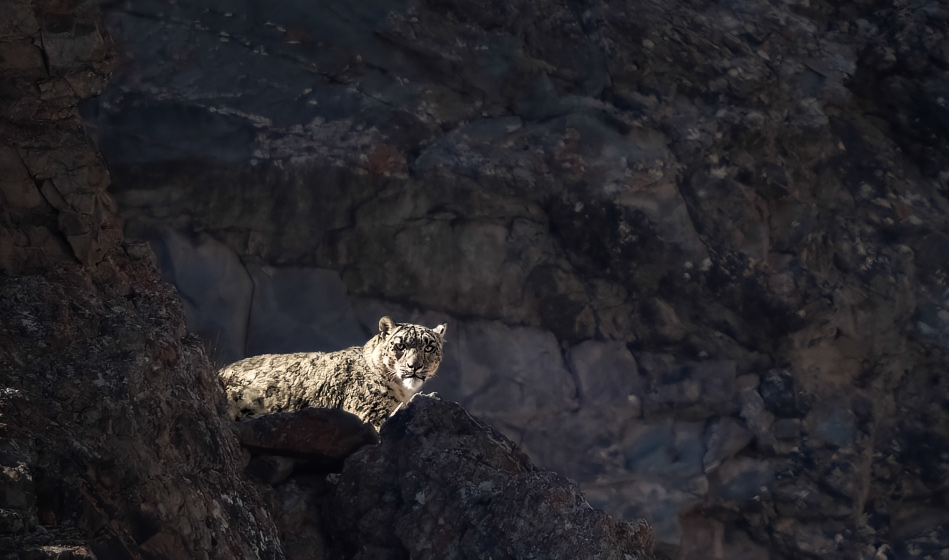
Ladakh in the winters is other worldly. Stark and bitterly cold, but beautiful in a way only nature can manifest. Winters are quiet months for tourism, save for those looking to trek some winter routes or those seeking the ‘ghost of the mountains’ – the stunning and elusive Snow Leopard (Panthera uncia).
Ladakh is among the very best habitats for snow leopard in the world. The cats occupy the upper reaches of this Trans Himalayan region and are listed as schedule 1 species in the wildlife protection act – a?ording them the greatest levels of protection. This status ensures measures by the government and various state bodies to aid long term conservation through protecting their habitat, increased community advocacy, and maintaining a healthy prey base. It is often said that to see a snow leopard in their snow-laden rugged Himalayan habitat is one of those moments that brings your whole world to a standstill – perfectly camou?aged between the bits of bare rocks and patches of snow, these are some of the most elusive big cats on the planet. Only the luckiest wildlife enthusiasts get to see them. Perhaps a lone animal at a kill, or a mating pair, and often times quietly silhouetted against the perennially blue skies of the region.
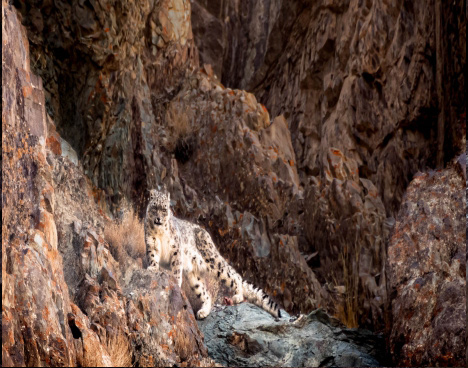
Snow leopards move with infinite grace and dexterity, almost poetic in the way they climb down the steep mountain ridges, especially awe inspiring when they are chasing their prey like marmots, blue sheep (Bharal) , Marco Polo sheep (Argali) , Ibex, and other smaller mammals. Interestingly, snow leopard are the only species in the Panthera family which can purr, unlike roarers like the tigers, leopards and lions. To see a snow leopard in the wild requires time out in the wilderness, patience and the ability to withstand the high altitude and cold temperatures.
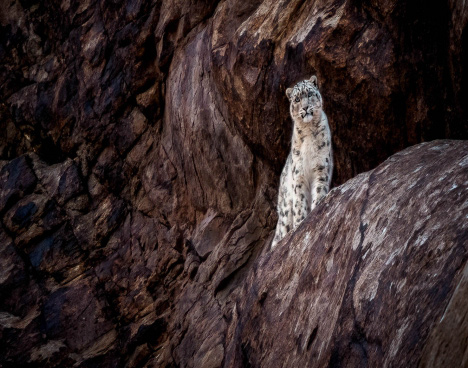
Designed as a high-altitude bush camp, The LUNGMAR Remote Camp is a first of its kind to access remote regions of Ladakh. LUNGMAR provides a composite experience that encompasses snow leopard tracking with insights into the living heritage of the region and cultural interactions through hikes to remote villages to meet communities. Among a few companies dedicated to build community and conservation centric tourism through training and outreach programs that help local communities protect their livestock, they are also fully managed by an all Ladakhi sta? trained to communicate and provide personalized and quality service.
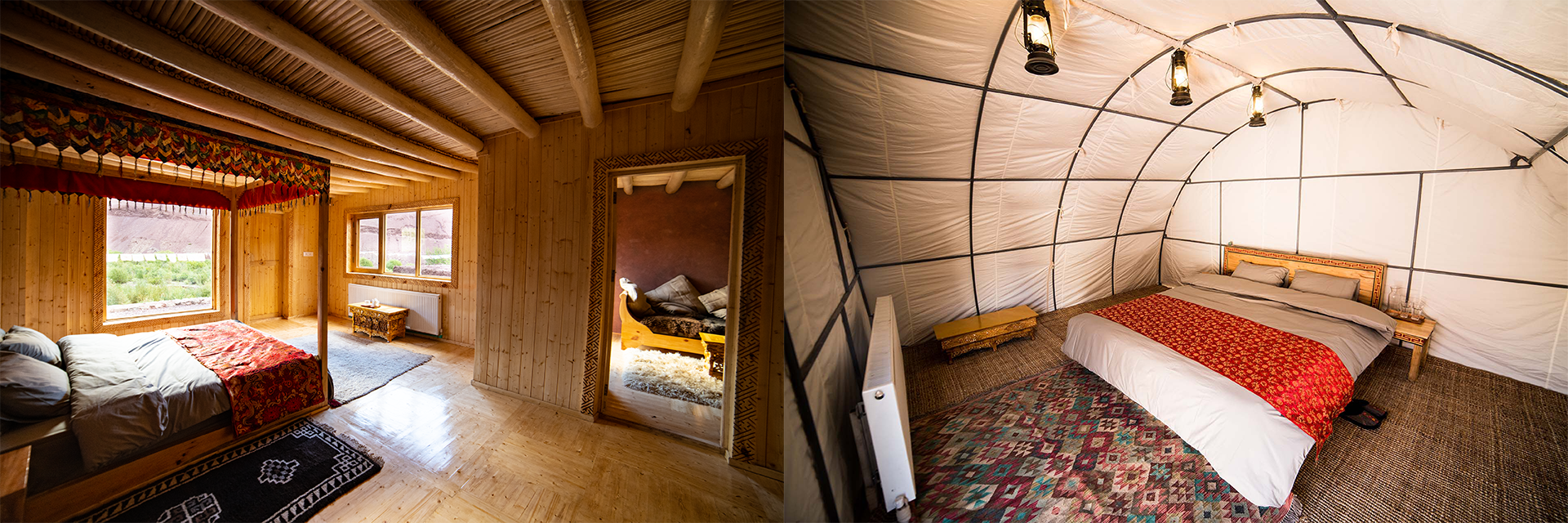
The LUNGMAR Remote Camp experience is a fully curated 6-7 night program that begins with a two night stay to acclimatise to the altitude while staying at The Grand Dragon Ladakh. Less than 40 minutes away by car, the camp is close to the Hemis Monastery and in the middle of a valley surrounded by gently rising high mountains that gleam a dulcet red, the reason for the camp’s moniker meaning the red valley. The entire camp is set on a low cli? that shows a full 240 degrees view around the valley with the Sumdo village on one side and the towering hills all around, a seasonal stream below inundated with local scrub is the camp’s water source. Operational since the winter of 2021, The LUNGM?R Remote Camp opened this season with 5 Predator suites and 6 dome shaped Kurkhang tents. The Suites are all heated and form the upper ?oor of the Sumdo Sarai – the Ladakhi style building which also houses the lounge, restaurant and library. Possibly the largest and most comfortable suites in all of Ladakh, the suites feature ensuite bathrooms with piping hot showers, large picture windows to catch the sun and stunning views of the hills and valley.
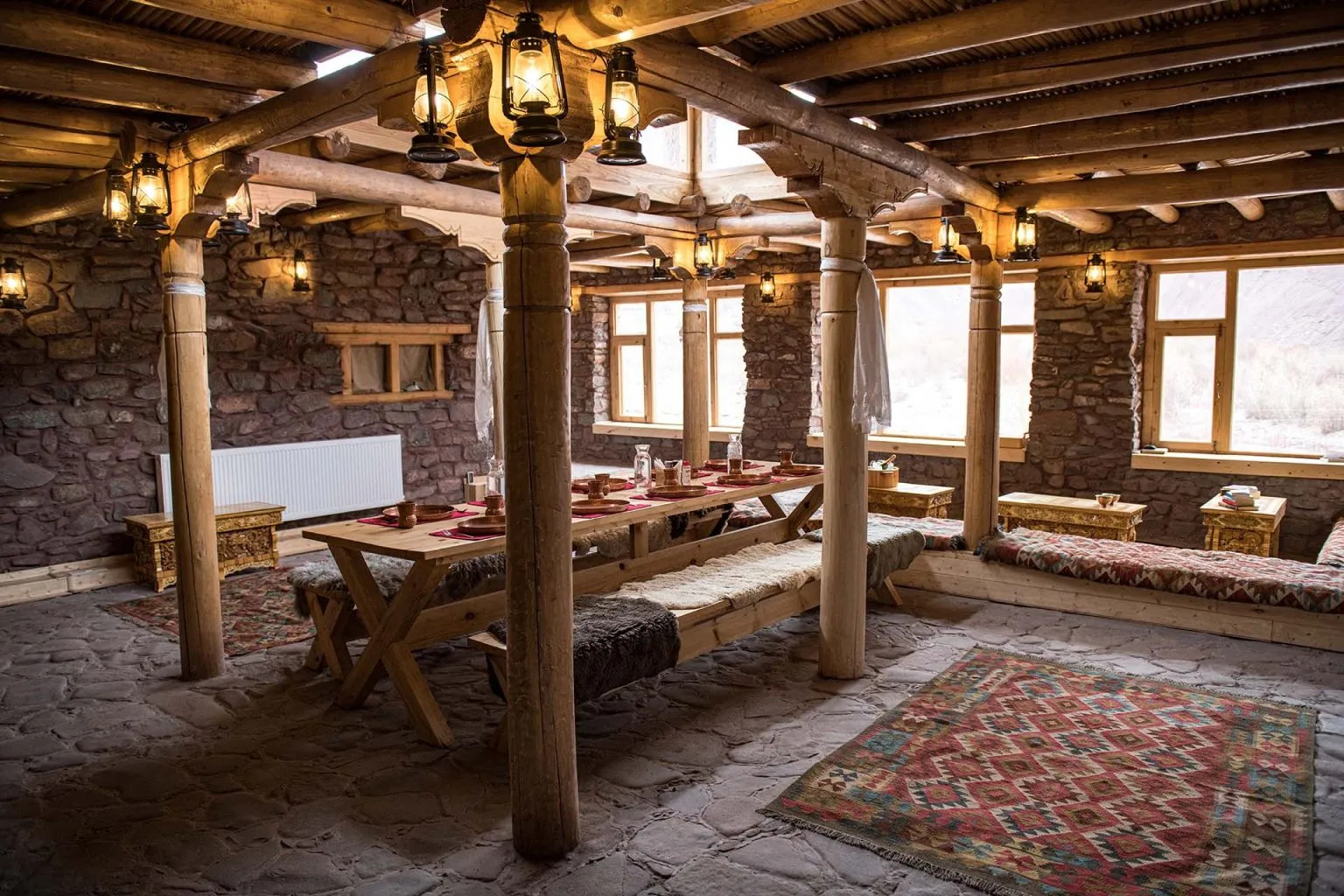
The Kurkhang tents, heated and insulated are comfortable, with quick access loos, you have to step out for. With dedicated trackers and hiking guides, the LUNGMAR Remote Camp sets you out on an iconic journey not only to track down the snow leopard in its habitat but also to experience ancient cultures, the region’s living history and behold spectacular landscapes. The Predator Suites will be open throughout the year, to allow summer travelers the exclusivity of a remote bush camp and access to the wilderness around, and to be just 15 minutes from the Hemis Monastery, ideal if you want to catch the Hemis festival in July, 2023.

